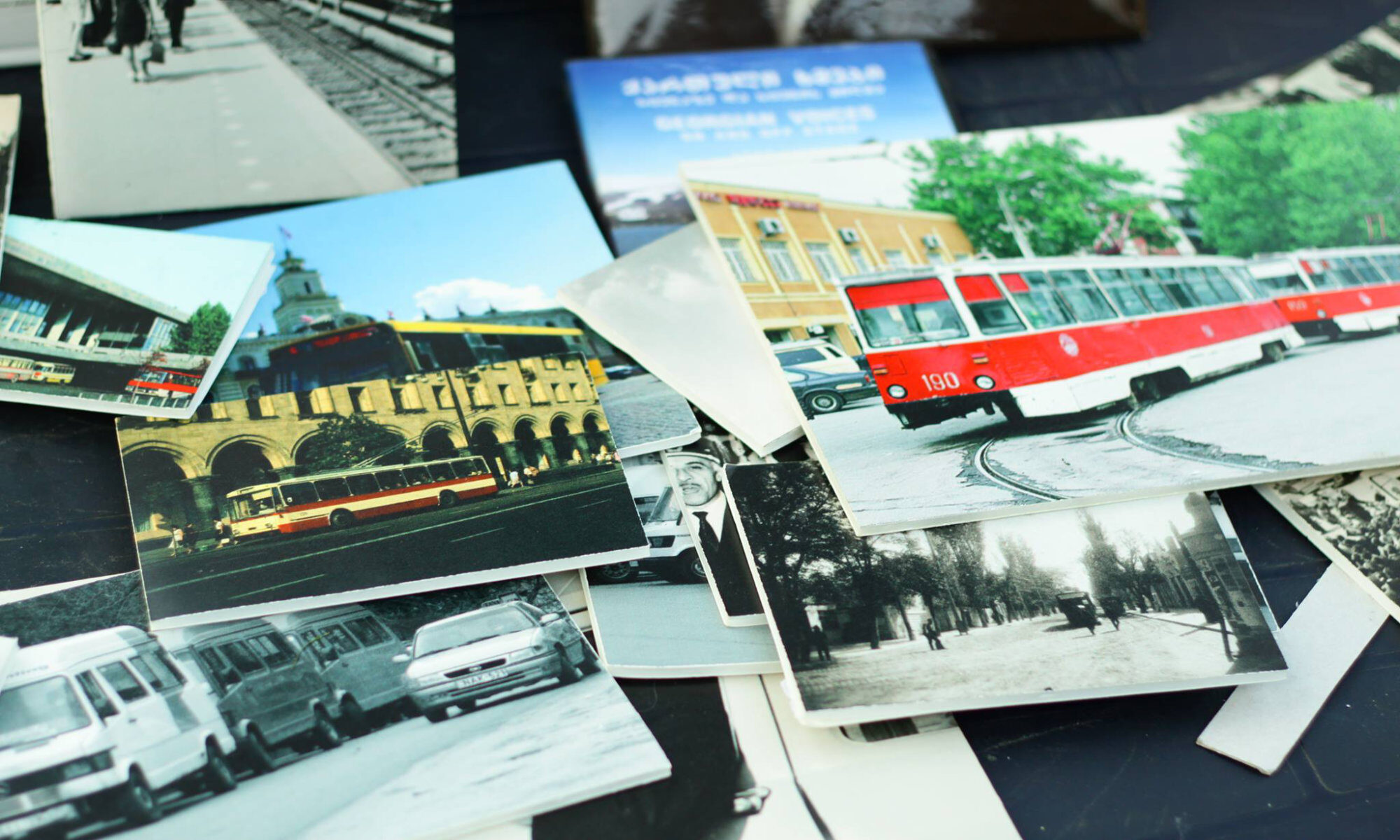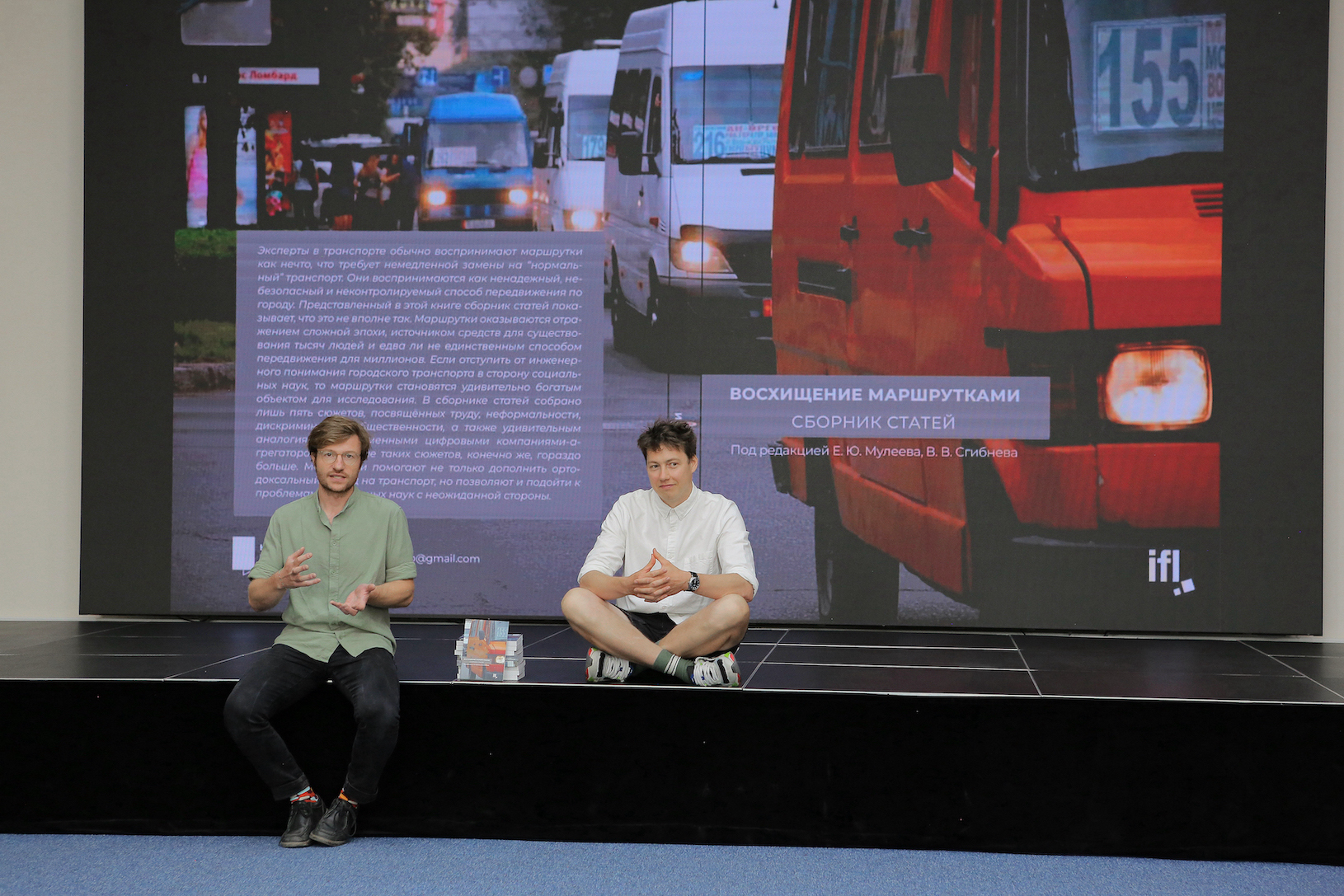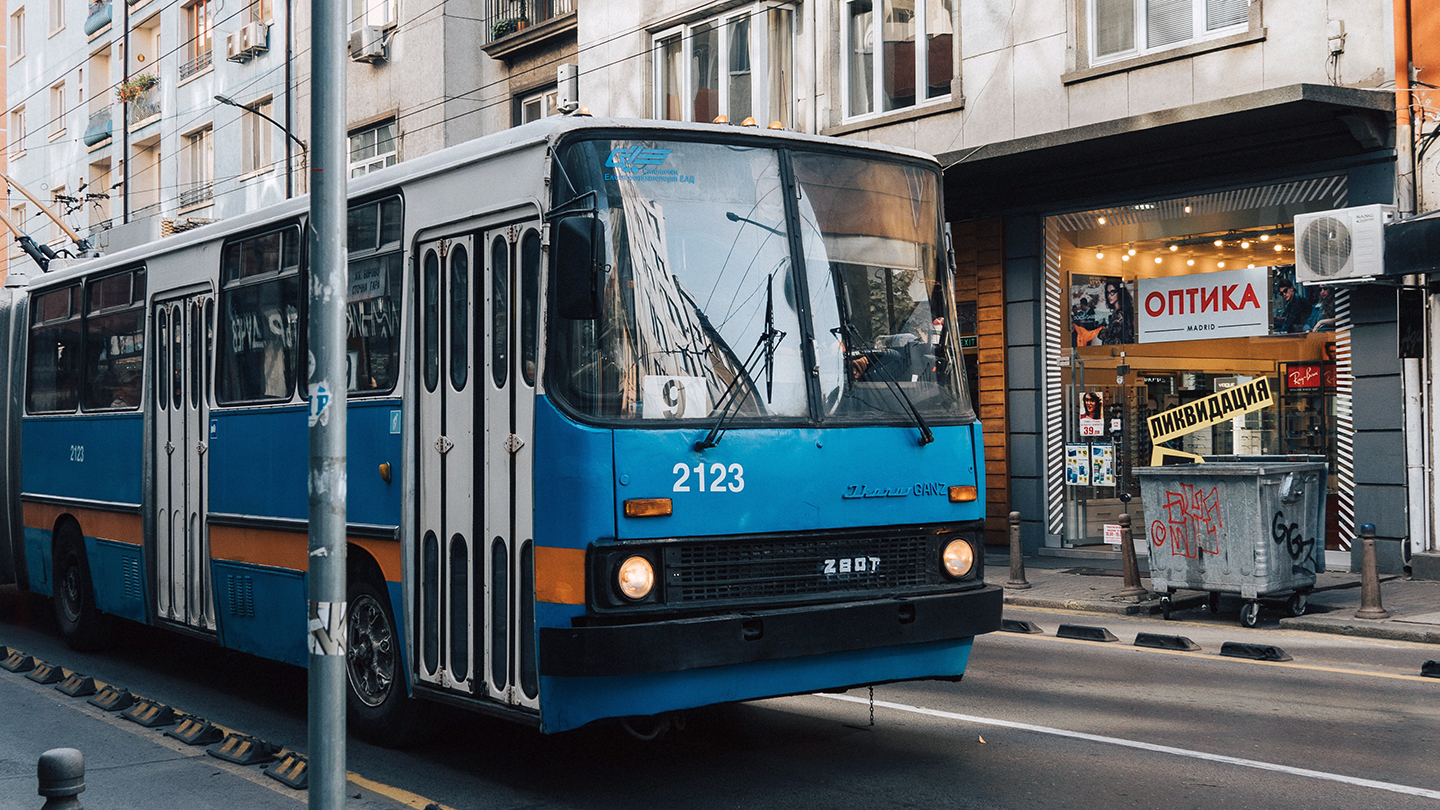During the 6th annual CASNiG Conference (Central Asian Studies Network) in Bishkek, organised by the American University in Central Asia and the French Institute for Central Asian Studies, Wladimir Sgibnev and Egor Muleev presented a new, upcoming book with the name “Appreciation of Marshrutkas”. It is a collection of articles originally published in English as part of the Marshrutka project, which have now been translated into Russian. The book contains five papers by Cholpon Turdalieva, Lela Rekhviashvili, Wladimir Sgibnev and Tonio Weicker. Egor Muleev translated and edited the papers, and wrote an introduction. The day before the launch at the conference, the Bishkek-based publishing house “Books for Development” held a similar event in their bookstore. So there were two launches, and both went really well.
New Article by Lyubomir Pozharliev on Sofia’s Trolleybuses and their Decolonial Implications
The Bulgarian Sociologičeski Problemi Journal recently published their final issue of 2024, with the overarching topic being “From one Language into another”: Social Problems Seen Through the Eyes of Bulgarian Scholars in Foreign Countries (Issue Editors: Raia Apostolova, Neda Deneva). CoMoDe’s own Lyubomir Pozharliev contributed an intriguing article to the edition with the title Decolonial Insights into Public Transport in Sofia: “Eastern” Trolleybuses Vs. “Western” E-Buses.
Abstract: The battery industry, i.e. battery-powered electric cars and buses, has been on the rise for the past decade or so. Several municipalities in Eastern Europe, Central Asia and elsewhere in the world are promoting and advertising their progressiveness by being ready to introduce (or have already introduced) the new battery-electric buses wherever and whenever possible. On the other hand, trolleybus technology is still widespread in post-socialist countries and offers an electric alternative to the battery-powered bus. This paper attempts to address the introduction of the new technology from the per- spective of the older technology – the trolleybus one. Based on interviews with local experts and data from the Bulgarian capital, the paper will explore the potential of the decolonial perspective in addressing public transport developments in a post-socialist, Eastern European context.
The full article in Bulgarian, as part of Issue 2/56 in Sociologičeski Problemi Journal, can be accessed here (no free access).
New Article by Bermet Borubaeva and Egor Muleev on the Trolleybus Case in Bishkek
Published by the Berliner Gazette on the 11th of November 2024
In “Governing ‘Green’ Public Infrastructure: The Trolleybus Case in Bishkek,” Bermet Borubaeva and Egor Muleev take us on a ride through the tangled wires of Bishkek’s trolleybus saga—a tale of sustainability, bureaucracy, and a city at a crossroads. At the heart of the drama is Bishkek’s trolleybus system, the capital’s only electric public transport with enough capacity to avoid daily gridlock, yet it’s on the brink of extinction. City Hall, nudged by foreign consultants and seduced by shiny new e-buses, wants to ditch the old for the new—even though the old is green, functional, and beloved by the people. What follows is a classic case of public infrastructure caught in the gears of bureaucracy, where short-term decisions and backroom deals hold more weight than long-term planning.
The article further explores the role of local governance, workers’ struggles, and grassroots resistance in shaping the future of public infrastructure, using the trolleybus as a case study for broader issues in urban mobility and democratic accountability.
Read the whole article here.
Beyond fear and abandonment: public transport resilience during the COVID-19 pandemic
New in: A collaborative paper by Louise Sträuli, Tauri Tuvikene, Tonio Weicker, Wojciech Kębłowski, Wladimir Sgibnev, Peter Timko and Marcus Finbom, published in the scope of the Putspace project at IfL.
´The authors investigate how the Covid-19 pandemic affected both the accessibility of urban public transport and its structures themselves. It takes a closer look on the specific governmental regulations regarding urban mobility and points out the struggles of people who were especially affected by the Covid regulations on urban transport systems.
In an extensive mixed-method study, data on the behavior, emotions and struggles of public transport users and urban citizens from Berlin, Brussels, Stockholm and Tallinn has been collected. It is shown, how the regulations transformed general passenger behavior in terms of usage, distances and frequency of travel and that certain narratives and passengers emotions as well as their socio-economic conditions have to be taken into account when trying to understand the realm of public transport in times of crisis.
Read the full open-access paper here!
The Soviet city as a landscape in the making

Following the launch of the mass housing campaign under Nikita Khrushchev, the cityscape of Soviet Samarkand still remains some changes and continuities of it. This paper examines the planning, building, appropriation, and renovation of public and private housing on the level of practices rather than policies and discourses. It relates these practices to the specific temporalities of Samarkand’s landscape, such as the life cycles of inhabitants, the change of seasons, or the timelines of material decay, among others. Continue reading “The Soviet city as a landscape in the making”
Freshly published: Geoforum Editorial on informalities in urban transport and mobility
This editorial introduces and contextualises the Special Issue on informalities in urban transport and mobility in cities across the Global South, East and North. It identifies a mutual misrecognition between the urban studies literature on informality and research on transport and mobilities, and proposes that urban mobility be understood as a critical site of contestations over (in)formalisation processes. Continue reading “Freshly published: Geoforum Editorial on informalities in urban transport and mobility”


